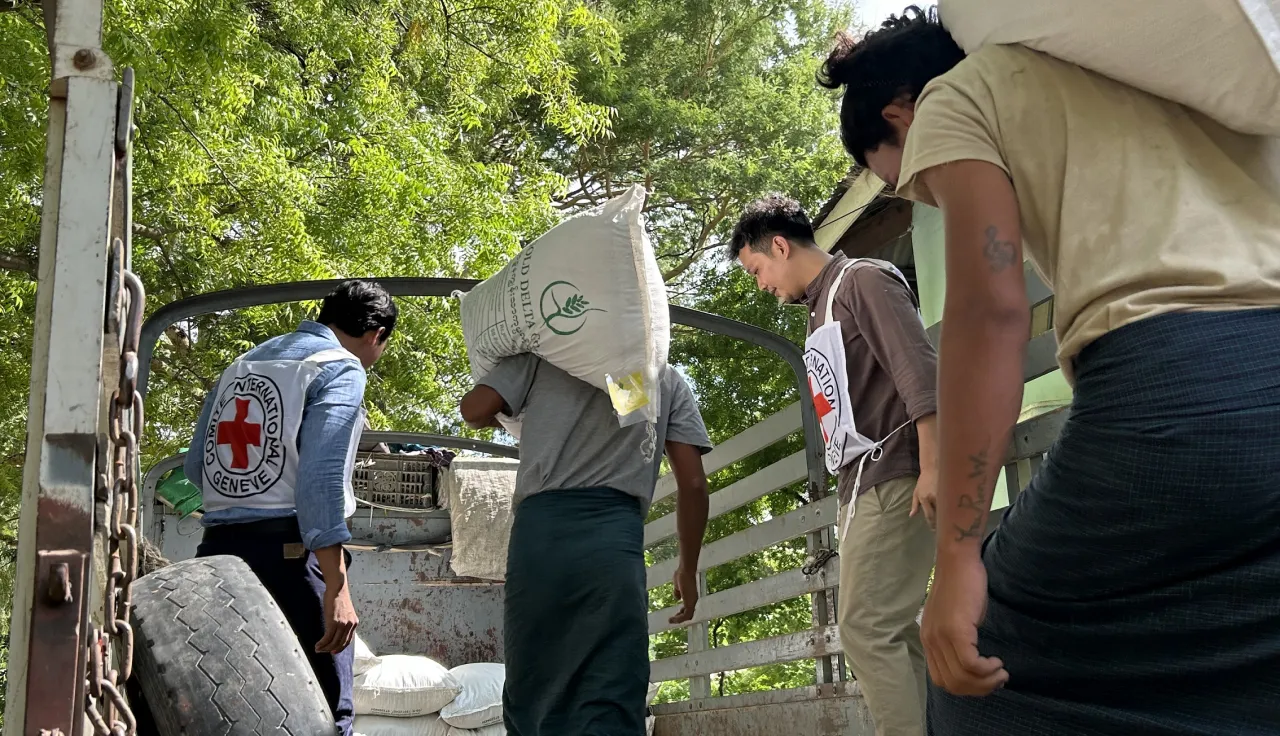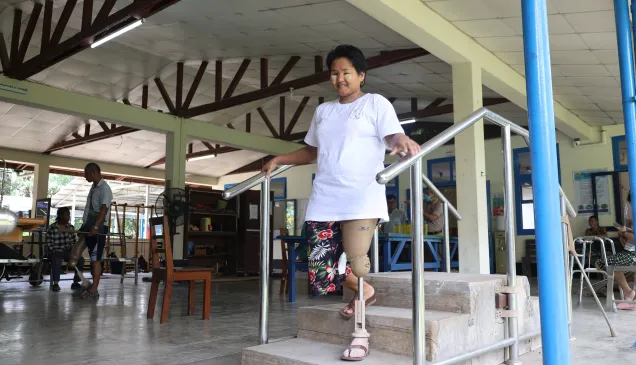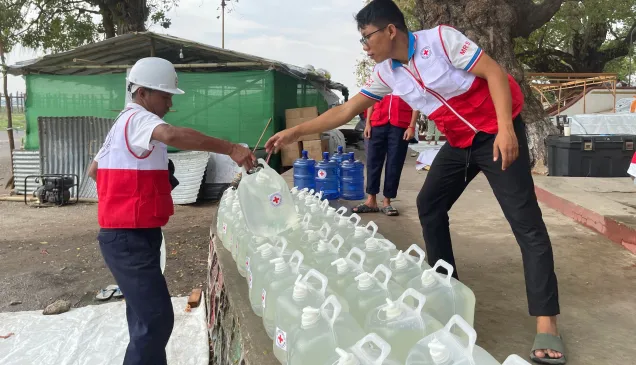Myanmar: Finding hope, strength, and food security

Myanmar, the second largest country in Southeast Asia, is home to more than 130 ethnic groups and shares borders with India, Bangladesh, China, Laos, and Thailand.
Although the country is rich in resources, conflict and displacement—compounded by a political crisis, economic downturn, pre-existing poverty, and climate-related shocks—are making it increasingly difficult for its people to meet basic needs. Many communities are forced into repeated relocations in search of safety, and countless families struggle to survive as work opportunities and sources of income disappear. Farmers, too, face immense challenges, often unable to cultivate their land. According to a WFP report, Myanmar is experiencing unprecedented levels of food insecurity, affecting 15.2 million people.
Amid these hardships, resilient host communities are demonstrating remarkable strength. Some farmers have sown paddy seeds and cultivated vegetable gardens, pouring all their efforts into enhancing food security in their communities despite the echoes of conflict. To support these efforts, the International Committee of the Red Cross (ICRC) is providing certified paddy seeds, vegetable seeds, corn seeds, agricultural tools, organic fertilizer, and training in model agricultural production to enhance crop yields. These resources are intended for farmers who are striving to feed their families.

The ICRC supports the food production by equipping farmers with essential skills and resources. First, they undergo hands-on training in modern agricultural techniques to boost food production, strengthen food security, and improve community nutrition. Then, they receive support to cultivate their land.
Ma Thinzar Htoo from the ICRC, who oversees the programme, stated, “In 2024, amid escalating conflict, we developed strategies to deliver agricultural resources despite major transportation and communication challenges. Collaborating with civil society organizations, we explored various routes to ensure timely assistance for cultivation.
Our support cycle ranges from training to harvesting. We work with civil society organizations not only in distribution but also in monitoring. Our assistance is provided based on vulnerability and specific geographic conditions, helping to ease the burden of securing food and bringing stability to daily life."

For farmers, obtaining quality seeds remains a challenge. “Due to the current situation, it is becoming harder for us to obtain quality seeds. I believe that we will have better production with the paddy seeds and organic fertilizer,” said Daw Hlaing Hlaing Oo, a farmer and mother of two, who received two bags of paddy seeds and eight bags of organic fertilizer in May 2024 in Mohnyin Township, Kachin State.

A mother from Myanmar’s central region shared how the program has positively impacted her family: “I use the vegetables in my own kitchen and also sell some to others. With the money I earn, I was able to buy new clothes for my two-year-old son. Although the income is not large, it helps me cover daily essentials.”

Farmers are already seeing promising results. “These seeds have longer panicles and grow taller compared to our traditional variety. I think the yield will be better. I have just harvested them. Usually, we only get about 70 baskets per acre. We have not threshed them yet, but I think we will get more than 80 baskets per acre,” said U Lagying Dau Hkawng from Waingmaw Township, Kachin State.
The ICRC remains committed to supporting the agricultural production process by closely monitoring progress and collaborating with local communities and civil society organizations.

In a country plagued by conflict, violence, and natural disasters, many communities continue to face overwhelming challenges. The ICRC's mission is to protect the lives and dignity of those affected, ensure their safety, restore hope, and enhance their resilience. Last year, we provided 120,430 people across the country with vegetable seeds, paddy seeds, agricultural tools, organic fertilizers, and training.
Amid uncertainty and hardship, resilient farmers continue to find moments of stability through their dedication and perseverance. Through hard work and determination, these communities are not only preserving their livelihoods but also finding hope and strength to move forward.



